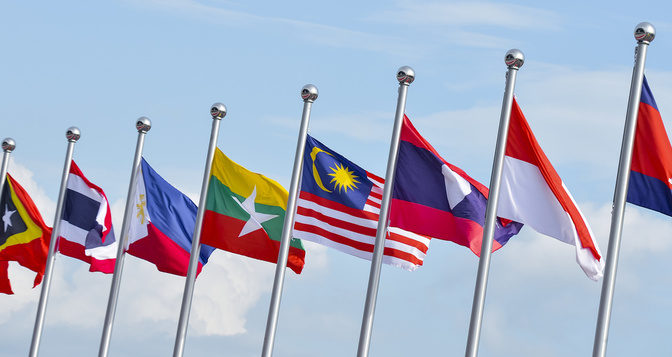
 "
"

 "
"

Globally, the value of Islamic financial assets climbed 14% year after year in 2020 to US$3.374 trillion, with a forecast growth of US$4.94 trillion by 2025. The success of Islamic banking will help fuel the region’s economic growth and strengthen its position as a worldwide finance center.
ASEAN – The Association of Southeast Asian Nations is a political and economic union of ten Southeast Asian member states that promotes intergovernmental cooperation and facilitates economic, political, security, military, educational, and sociocultural integration among its members and other Asian countries.
There are several causes for Southeast Asia’s Islamic banking leadership, but strong government backing has been a crucial element. From offering different incentives to developing supporting regulatory frameworks, Asean nations are always attempting to establish a comprehensive Islamic financial ecosystem.
Islamic banking is unique in that it has always been centered on a values-based approach to finance. Some of the industry’s guiding principles are avoiding socially harmful practices, including investing in businesses such as cigarettes, alcohol, and gambling.
There is also a wide range of Islamic banking products presently accessible. Cosmetics, medicines, modest fashion, and halal tourism have all entered the halal industry. These halal products and services appeal to both Muslims and non-Muslims, so it’s no surprise that the industry is anticipated to reach US$3.1 trillion by 2023.
While Shariah-compliant bonds, or sukuk, are arguably the most well-known product, the most substantial banks provide a full range of Islamic banking services for corporations, ranging from financial markets to transaction banking and corporate finance.
The expansion of Islamic banking will aid in the delivery of financial services to previously underbanked people and industries. As, established financial institutions may assist corporations in expanding worldwide and reaching foreign clients by offering the Islamic banking services they require.
Demand for Islamic banking is expected to rise as consumer and business trust in the sector grows as consumers and businesses continue to seek socially and ecologically responsible products and services. As a consequence of strong government support, vigorous consumer demand, and a thriving banking industry, Asean is well-positioned to lead the rise of Islamic finance and reap the economic and social benefits.